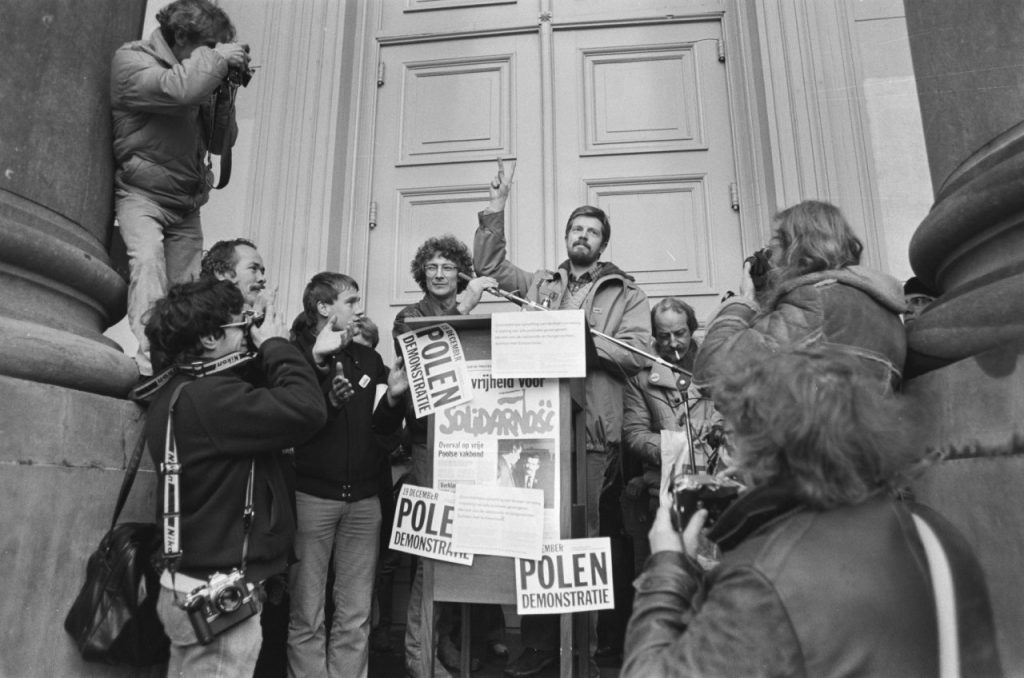Forty years ago, Poland was in the grip of the martial law, which had been introduced on 13 December 1981. A military junta attempted to weaken political opposition, for example by the deployment of army units, censorship, and the imprisonment of activists without trial. The period also saw great shortages in food supplies. Poland’s martial law lasted until July 1983.
In the Netherlands, several organisations set up help for Poland. Most famously, the Stichting Vriendenhulp Heemstede (Friends’ Help Foundation Heemstede) organised ‘Pak van je hart’ (‘A Package from the Heart’ – a Dutch play on words), a fundraiser which resulted in 180.000-200.000 ‘Christmas boxes’ filled with food. 130 Dutch trucks delivered them all over Poland. Other initiatives were organised as well, many of which were centralised in the so-called Nederlandse Stichting Hulp aan Polen (Dutch Foundation of Help for Poland), which set up advertising campaigns to keep raising funds for Poland.
In addition, attempts were made in the Netherlands to cooperate with Solidarność, the Polish trade union and social movement which formed the main target of the martial law. The attempts were primarily undertaken by Merpol (Mensenrechten in Polen, Human Rights in Poland), an organisation of Poles in the Netherlands. One of them was Jan Minkiewicz, the son of Polish migrants, who was raised in the Netherlands. On 19 December 1981, during a national demonstration in Amsterdam against the Polish martial law, Minkiewicz called for the establishment of a Dutch Solidarność bureau. The bureau’s first meeting occurred on 13 January 1982. It became a focal point in the Netherlands for information about Poland, organised demonstrations, and raised funds for Polish causes. Minkiewicz, meanwhile, became a central figure in the cooperation between Solidarność and Western activists. He eventually became the Western representative of the WiP (Ruch Wolność i Pokój, The Freedom and Peace Movement), a Polish opposition movement established in 1985.

More information about Solidarność and the Netherlands can be found in the PhD thesis of Christie Miedema.
*I originally wrote this post for the social media outlets of the Dutch Embassy in Poland. This was post no. 25.